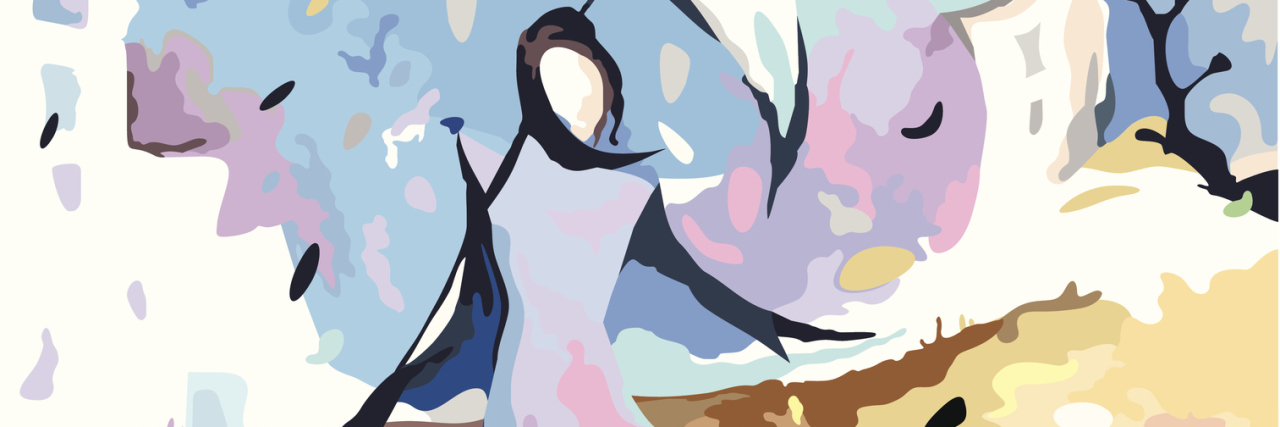“Do you think this product would be supportive and long lasting?”
I patiently await the icon to indicate that my long distanced friend is responding based on her former career and expert retail knowledge. The truth is, I am more than capable of looking up my query using the World Wide Web. Since my journey into a life with chronic pain, my research skills have only increased in variety. What I’m searching for in this answer goes beyond that. My question is an attempt to connect with those in that I am no longer close with (which is the majority of my former friends). In short, it’s small talk.
In a former life, I used to abhor small talk. Overwhelmed and overstimulated by my busy career, my social interactions were much more targeted into something deeper. My favorite activities were adventurous trips out of town and concerts. Presently, though, small talk is all that I can handle most days.
Brain fog is no mythical ailment and it takes all of the relative brain power I have just to keep up with appointments, self-care, and the dizzying effect of feeling like hot potato that no doctor wants to grasp for too long. Back and forth, I have traveled from surgeon to pain management and back again.
My most recent diagnosis: arachnoiditis. For those of you who do not know, arachnoiditis is a debilitating, degenerative, and incurable disorder that causes intractable pain due to the web-like clumping of nerve roots around the spine. I am now a hot and slippery potato that no doctor wants to hold onto or make eye contact with. Fortunately, due to my expert level of detective web-sleuthing and message boards, I was able to find a packet to assist me with the a-word that no one wants to mention. It’s also nice to finally have a diagnosis that explains why recovery has been less than optimal.
The last few years have been rather isolating. Despite my best efforts, much of what I have enjoyed and worked for has slipped away. In spite of this, I attempt to have a positive outlook.
The only insurance I currently have is for what is covered with my injury. Currently, I cannot work and I do not have regular health insurance. Unfortunately, that means that I have to scrounge and save for out-of-pocket visits to cover my attention deficit hyperactivity disorder medication. Brain fog is extra hazy with that factor included. Usually, I just go without that treatment and the regular physical blood work that needs to be done.
A normal day includes waking up, pain medicine, and waiting on that work. Eventually, I get up and force myself to walk my pup outside so that we both can get fresh air and move about. Most days there is some type of appointment: physician, pain management, physical therapy, etc. Some days it’s extremely difficult to make it to these appointments because driving is no longer easy. If I’m lucky, I’ll speak to a friend or my family and I’m able to cook. In an attempt to keep the conversation light, I’ll center the topic around them and relive the experience vicariously. What is now my personal norm and small talk is not always easy to digest, so I try and keep my daily activities as vague as possible.
There are those friends and family who have stood by me with unwavering support and there are those who I unexpectedly lost along the way. The future is more uncertain now that ever. I relate more to retirees than other 20-somethings.
Realistically, I could find a lot to be unhappy with each day. Instead, I try keep calm and my mind occupied. I’ve probably gotten too adept at residing in my own bubble with my distraction techniques, but it’s the only way that I can keep the pain and loneliness at bay. Living each day the best that I can is no small task, even if it isn’t much to talk about.
One new message, “That’s a good brand. You should try it out.”
“Thank you so much! How have you been? I really miss you.”
We want to hear your story. Become a Mighty contributor here.
Thinkstock Image By: Elena_Bessonova

